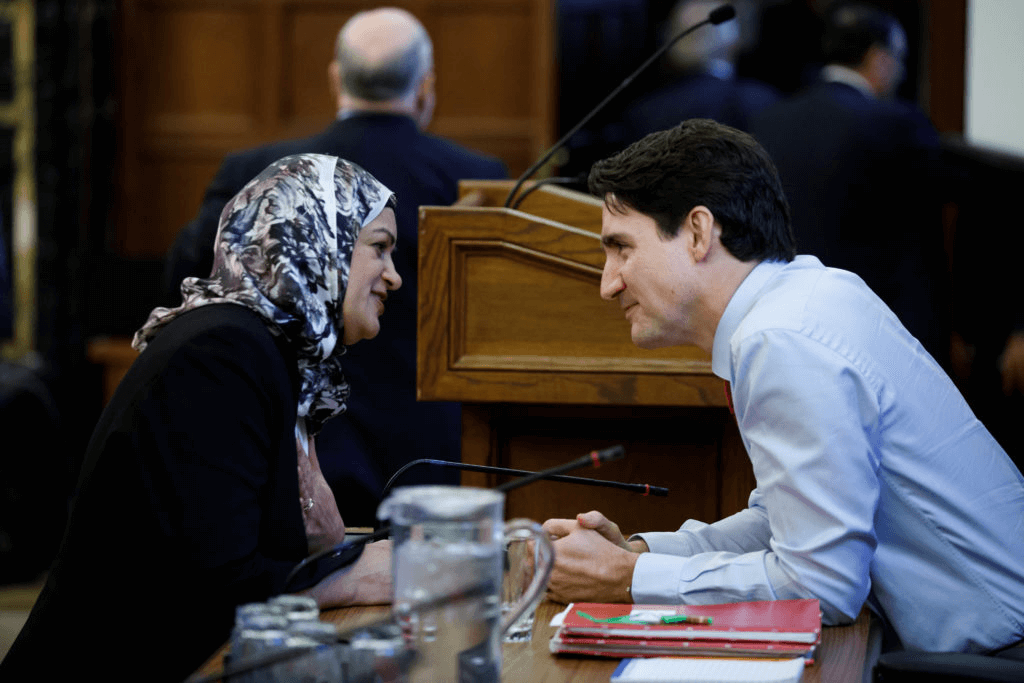As the COVD-19 pandemic continues to disrupt the lives of people all over the world, many are wondering when things will return to normal and what the lasting effects of the shutdown will be. For many students, their academic routines have been thrown into flux. Elementary and high school students in Ontario have been out of class since March 13 and in-person classes aren’t scheduled to resume until May 4. That date could be pushed back further based on advice from the province’s health officials. There’s a worry that if the spread of the virus isn’t managed soon, schools won’t resume until June, potentially jeopardizing the entire school year.
Governments and institutions across the country have stepped up to provide supports for students who’ve been forced to study from home. On Monday, the Ontario government launched an at-home-education program to help students re-establish learning routines. The program was created by the education ministry and is led by teachers, it allows them to connect with their students. The program is designed to be flexible and is meant to be implemented in collaboration with educators, parents and students.
As many parents adjust to suddenly being unemployed or working from home, they’re wondering how they can make sure their children aren’t falling behind academically. Last week, Salma Zahid, the Liberal Member of Parliament representing Toronto’s Scarborough Centre, held a town hall via Facebook to address the concerns of families in her riding.
“I know it’s very challenging times for all of us and we all need extra help,” Zahid said after introducing herself and her family. “I request for the cooperation of all our youth in these difficult times.”
The New Normal
One of the first questions Zahid received came from a concerned parent who asked, “How can I make sure my son is studying?”
“Ask your kids. Check with them, see what assignments and quizzes they have, find out their schedule. Tell them why it is important that you take your studies seriously. I know it is a difficult time also for parents and students because they have to do things online and they might not be used to it. Highlight that we are in very difficult times and everyone has to adjust to that routine,” Zahid replied.
Zahid also suggested that parents wake their kids up early like they would if they were physically going to school, in order to maintain their regular routine.
The Ontario government has also provided parents with some online learning resources for elementary and secondary school students so they can practice their math and literacy skills. Minister of Education, Stephen Lecce, said there are different requirements when it comes to the number of hours of work and what subjects are focused on for different age groups in the program. He also highlighted that one of the goals of the program is to ensure that high school seniors graduate on time. The program includes online learning, but telephone calls and mail-out packages are also available. Lecce noted that plans are in place to get students electronics if they don’t have what’s needed at home and that households without internet access won’t be left behind.
Many post-secondary institutions have taken similar steps to support students learning from home by moving their classes and support services online. Some professors have held their classes live via conference-call apps while others have prerecorded lectures to accommodate students in different time zones. Universities have also offered to help their students deal with the COVID-19 situation by extending deadlines and giving students credit-no-credit options for their transcripts. Questions still remain about the status of many school’s summer classes so it’s advised that you check with the school’s website.
Temporary amendments have also been made for Post-Graduation Work Permit (PGWP) eligibility for international students. Normally, students would be ineligible to receive a PGWP for taking too many online courses but IRCC (Immigration, Refugees and Citizenship Canada) ruled that students taking courses that have moved online due to COVID-19 will not be affected.
“What About International Students?”
Another issue people expressed their concerns about during the town hall was the status of international students in Canada. There were 642,480 international students in Canada as of December 2019, which accounts for more than 20 per cent of the student population. Zahid assured the audience that international students would not be kicked off of campuses despite the fact that universities are closing.
International students, out-of-province students and students who live more than five hours away from campus who weren’t able to make travel arrangements are allowed to remain in residence, in most cases. Some venues, like hotels, have been converted into temporary student housing and several provinces have made it harder for landlords to evict people—and in some cases collect rent at all—during the crisis.
Between social distancing measures, the loss of many people’s jobs and all the uncertainty that COVID-19 brings with it, it’s understandable to feel anxious or helpless. Last week, the federal government pledged $7.5 million in funding to Kids Help Phone to provide mental health support to children and youth who’ve been impacted by school closures and reduced access to social supports and community resources. Zahid believes that during these difficult times, it’s of the utmost importance to cooperate with and support one another.
“The only way we can overcome this and flatten the curve will be if all of you help your parents, help your friends, help your family members and try to follow the advice of Health Canada, the federal government, the provincial government and your local municipalities,” Zahid urged.
Marcus is a poet, editor and freelance journalist based in Toronto. He currently works with New Canadian Media as an Editor and as a Freelance Writer for ByBlacks.com, The Edge: A Leader's Magazine and The Soapbox Press.




